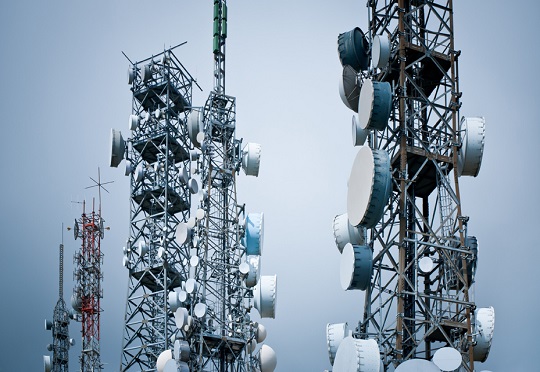Published
4 years agoon

____________________________
The Nigerian Communications Commission (NCC) has called on all stakeholders for collective protection of telecommunications services in Nigeria.
The call followed disclosure by the commission that major mobile network operators (MNOs) in the country recorded 9,077 cases of service outages on their networks in the second quarter of the year.
The development led to unexpected disruptions to operators’ network quality of service (QoS) delivery and intermittent quality of experience (QoE) by the consumers, the NCC has said.
Note that the MNOs are the four major GSM operators in the country including MTN, Airtel, Globacom and 9Mobile, with collective 196.04 million active subscribers on their networks as at June, 2020.
Adeleke Adewolu, the executive commissioner, stakeholder management (ECSM), NCC, disclosed this in a presentation delivered during the first Virtual Telecoms Consumer Parliament (VTCP) hosted by the Commission recently in Abuja.
According to Adewolu, of the 9,077 service outages recorded by the operators, 3,585 were caused by incidences of denial of access to telecoms sites for maintenance, 4,972 were triggered by incidences of fibre cuts from construction activities and vandalism while 520 cases were as a result of incidences of generator and battery theft at sites.

Adewolu, NCC’s ECSM
Adewolu, however, noted that in a proactive step to mitigate the challenges, the commission had swiftly responded by taking some major decisions to mitigate any unforeseen challenges that may cause serious disruptions in service delivery to the consumers throughout the period of the COVID-19 pandemic.
He said, “the commission approved resource sharing by operators throughout the period of COVID-19 pandemic.” These include fibre optic cables and other resources in the event of cable cuts and other unforeseen developments.
“We also ensured that the service providers meet the needs of their teeming consumers by securing Right of Passage (RoP) for all telecommunications officials and staff for easy movement during the lockdown.
“This was to ensure ease of movement to service base stations and other telecom facilities and equipment,” among others.
The ECSM called on all stakeholders to join hands with the commission in enlightening all citizens on the need to protect the telecom infrastructure in their domain without which quality of service delivery will be hampered.
He noted the numerous complaints received from consumers by the commission since the outbreak of the pandemic were indicative of the widening gap between the consumer QoS and the QoE provided by the service providers, which, according to him, needed to be addressed.
He further charged operators on the need to increase and improve their network capacity following the unprecedented increase in consumer demand.
“Also, service providers must embark on pervasive consumer education and enlightenment campaign about data usage and billing to ensure their subscribers have all the required information to make informed decisions so as get value for money spent.
Operators also need to train and equip their customer care personnel on consumer complaint management as well as ensuring that consumer complaints are resolved conclusively and in line with the revised Service Level Agreement (SLA),” Adewolu said.
He warned service providers to refrain from indulging in unwholesome practices such as modification of data plan without informing the consumers, putting out promotional advertorials without prior approval by the commission, changing the names and nomenclature of promotions from what was approved, among others to short-change the consumers, warning that the Commission will not hesitate to sanction erring operators.
Adewolu noted that the Consumer Code of Practice requires that once a contract agreement is signed, both parties should adhere to the contract terms and conditions and where a change is required, the validity period should end before any modification is effected.














